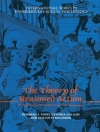The book examines the issue of authoritarian leadership through an evidence-based methodology. The original research addresses: (a) social risk factors the leader exploits to take power, (b) describe how these leaders influenced their followers, (c) the accomplishments of their regimes, and (d) how the society adjusted after the leader’s demise.. in separate chapters, the subtypes of authoritarian leaders are detailed (AL) – the charismatic, the thug, and the populist. In addition, clinical profiles are provided describing leaders’ relationships with families, friends, and followers. The book will examine how the subject assumed power, how they governed, and how they ceded power. The analysis highlights typical achievements and failures of authoritarian regimes. The final chapter describes the social consequences of authoritarian governance and discusses how liberal democracies need to protect their institutions from authoritarian take over. This work includes analyses and, statistical methods which are presented in a manner, making the book accessible to a wide readership. Scholars in psychology, sociology, political science and cultural studies will find this volume a revealing and necessary addition to their libraries.
İçerik tablosu
Chapter One: The Pandemic of Autocracy Societal Vulnerabilities to Authoritarianism.- Chapter Two: Authoritarian Persuasion.- Chapter Three: A Typology of Authoritarian Leadership.- Chapter Four: The Despot on the Couch: Personal Psychologies of Authoritarians.- Chapter Five: Authoritarian Governance: Clean Streets and Kids in Cages.- Chapter Six: When the Party’s Over: Societal Consequences of Authoritarianism.
Yazar hakkında
Edward Dunbar is a practicing psychologist, clinical professor at the University of California Los Angeles, an American Psychological Association: Fellow and member of California State Psychological Association.












